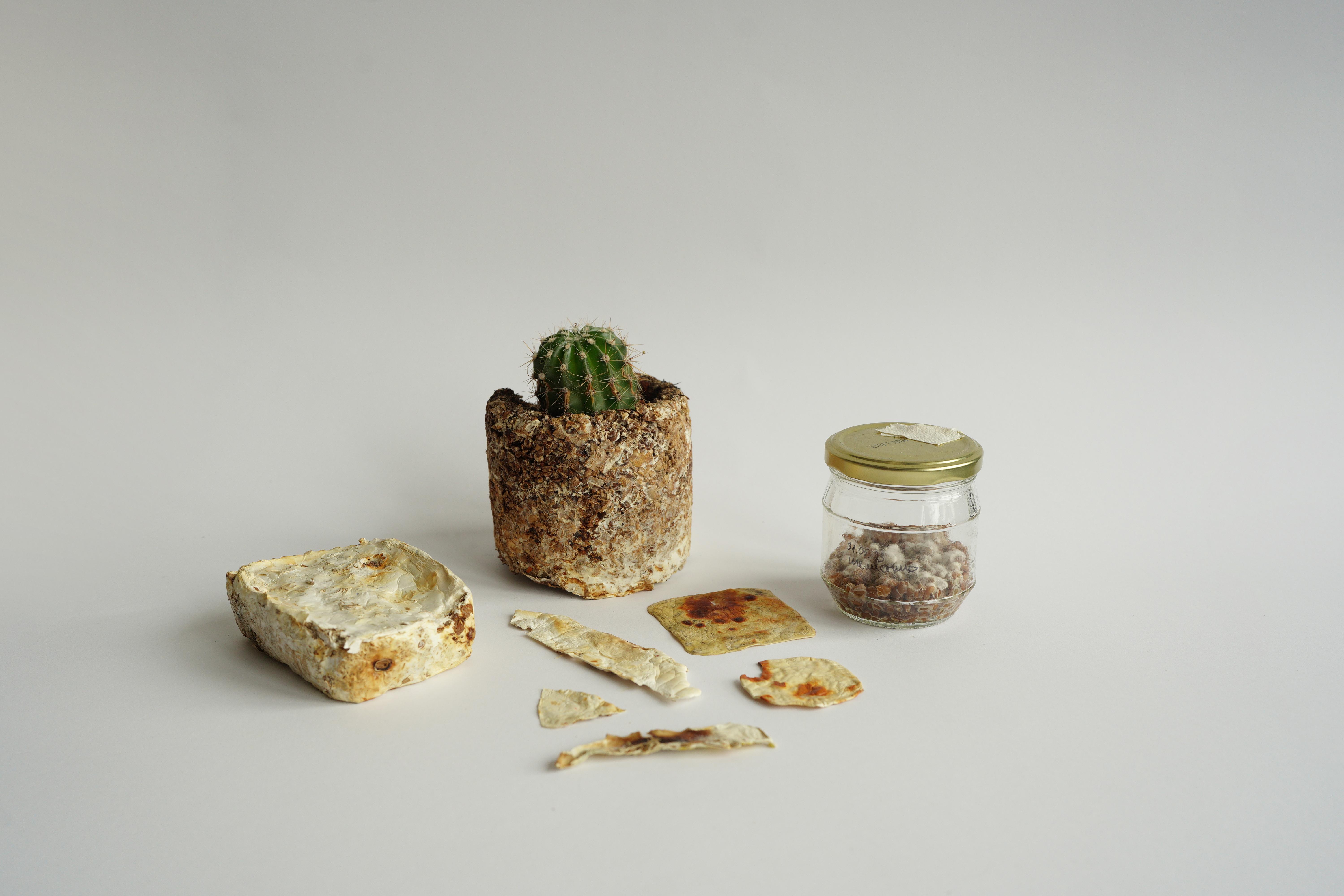Being a co-founder of another company - Shuflia leather goods workshop, Marta Kondryn devised the idea of Mycelia Tech. She co-founded this company with Oleh Lushchak, associate professor of the Department of Biochemistry and Biotechnology of Precarpathian National University. They are sharing the same vision of creating a sustainable and eco-friendly alternative to leather.
Marta resides in the city of Ivano-Frankivsk, in the west of Ukraine and previously worked as a HR leader for more than ten years in international companies. While she enjoyed her previous role, she recognized that becoming an entrepreneur would provide an even more fulfilling experience.
This is how she came to found Shuflia - handmade real leather sustainable items, practicing circular economy principles. Their products are designed and crafted in Ukraine and shipped all over the world.
But what pushed Marta even more and motivated her to pursue her dream was the war that is currently happening in Ukraine. Marta said that it was the war that pushed her to ask herself deep questions such as what impact could she have with her life if she were to die tomorrow.
Because at some point, during the war, the moments when you had to plan some contingency plans, including, what would happen if you were to die today? - And the answer was like, you have to pursue your dreams. You have to do something that you were postponing.
They have an office at Promprylad.Renovation, an innovation center on premises of an old factory. It focuses on four areas of development — new economy, urban design, contemporary art, and education that follows the impact investing model. Marta’s company employs women and continues to operate during the war, in fact they also take additional activities such as gathering funds to make 400+ slow tactical belts and their team is working hard to finish them on time and pass them to the Ukrainian armed forces.
But let’s come back to the Mycelia Tech idea: in the interview Marta said that miraculously, her co-founder happened to be a biotechnologist. Marta, led by her dream, contacted a biotechnologist by herself, created a partnership and so far, a company. She didn’t wait for it to somehow happen, she acted towards her dream. This is also a great example of a partnership between people from academia and business. And that was the same city of Ivano-Frankivsk where Marta found her academic talent.
They built their product around mycelium networks of fungi, which is the underground part of fungi, or the fungal equivalent of roots in plants, versus the well-known upper part - mushrooms.

Mycelium-based materials are gaining increasing popularity and development worldwide, recognized as ecologically friendly substitutes for a range of materials across various industries, including packaging, fashion, and building components. These substitutes offer a biodegradable alternative to conventional materials, paving the way for more sustainable production and consumption practices.
Mycelium Tech plans not only create new sustainable material but also to create ready-made items from their materials. Marta also knows her customers well as she already serves them with real leather products:
Our final customers are people, who love leather products for how they feel, smell and for their durability. Because mycelium has the same network structure as real leather, it is the closest material that can replicate the qualities of leather.
Mycelia Tech is working on getting their first patent in Ukraine granted. Their work was supported by various initiatives including some governmental programs. They are looking for creative people all over the world such as fashion designers, artists, and other creators to collaborate and create clothes or art using Mycelia Tech bio-leather material. So if you happen to be one, don’t hesitate to contact them.
Marta is also very eager to inspire people to use such material on a daily basis. As she clearly understands not only ethical issues but also huge environmental issues that production lines can cause.
Environmental damage by leather production starts at the farm level when cows produce a significant portion of methane emissions. Cattle ranching also requires vast territories of land, sometimes at the expense of crucial ecological conservation. The hides used for leather are typically a by-product of the beef industry, but have also become a profitable and desirable commodity in their own right. The process to turn raw hides into handbags and other leather goods is also polluting; typical tanning and finishing processes use heavy metals like chromium, which pose potential health risks to workers and, if found in water systems, nearby communities.
Mycelia Tech team believes that they can make fashion sustainable, and they are going to do it with science. This is fascinating how collaboration between industry and academia can lead to examples like this, and all this in the middle of the tragic ongoing war. The story of Marta and Mycelia Tech is both inspiring and innovative, as they are striving to revolutionize the natural materials industry through their scientific research and sustainable practices.
The sustainable materials market is growing rapidly; individuals, scientists and businesses are taking efforts to reduce environmental impacts. Despite us being pretty far as humanity from reaching this goal completely, we can help or become those leaders of the new sustainable and recyclable world and adopt an improved mindset by collaborating with or being inspired to create by such brave people as Marta.
Please also enjoy this short interview with Marta Kondryn.
References & Mentioned:
- YouTube Interview Episode
- Audio Podcast Episode
- Mycelia Tech profile at kyivlab.com.
- myceliatech.com website
- Shuflia - another Marta's company - handmade real leather sustainable items
- Discover more innovators at https://www.kyivlab.com/